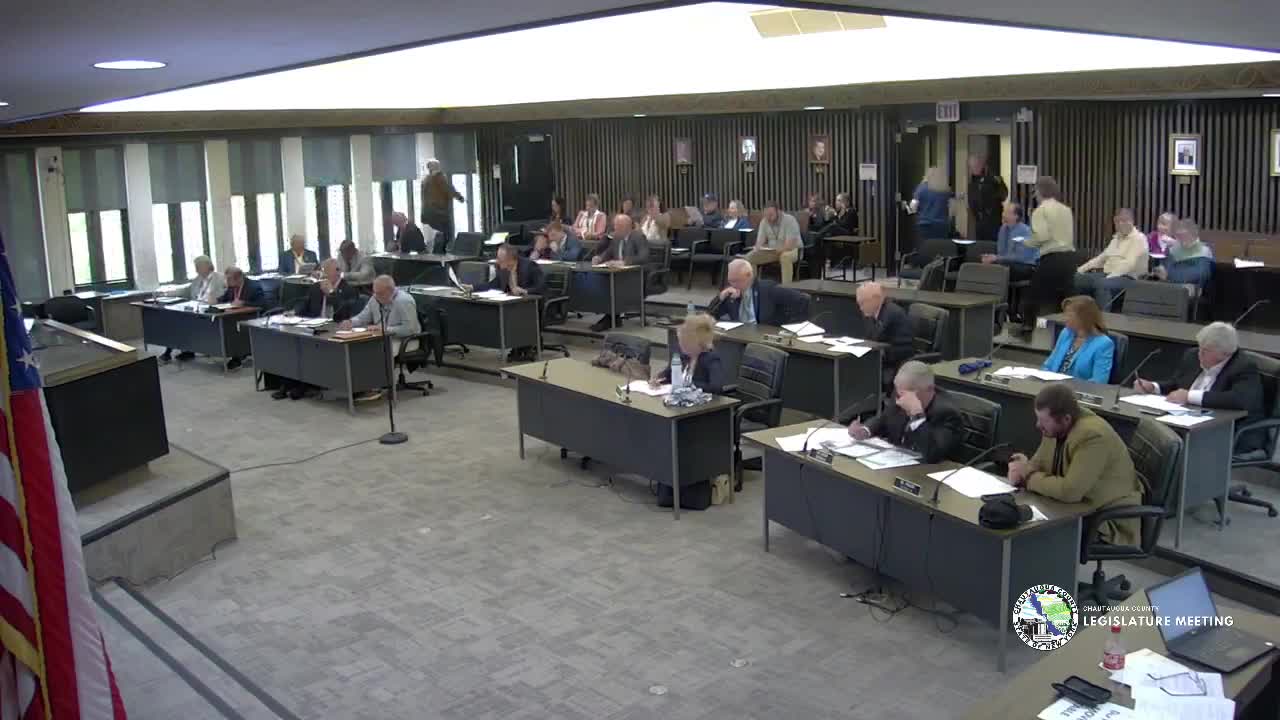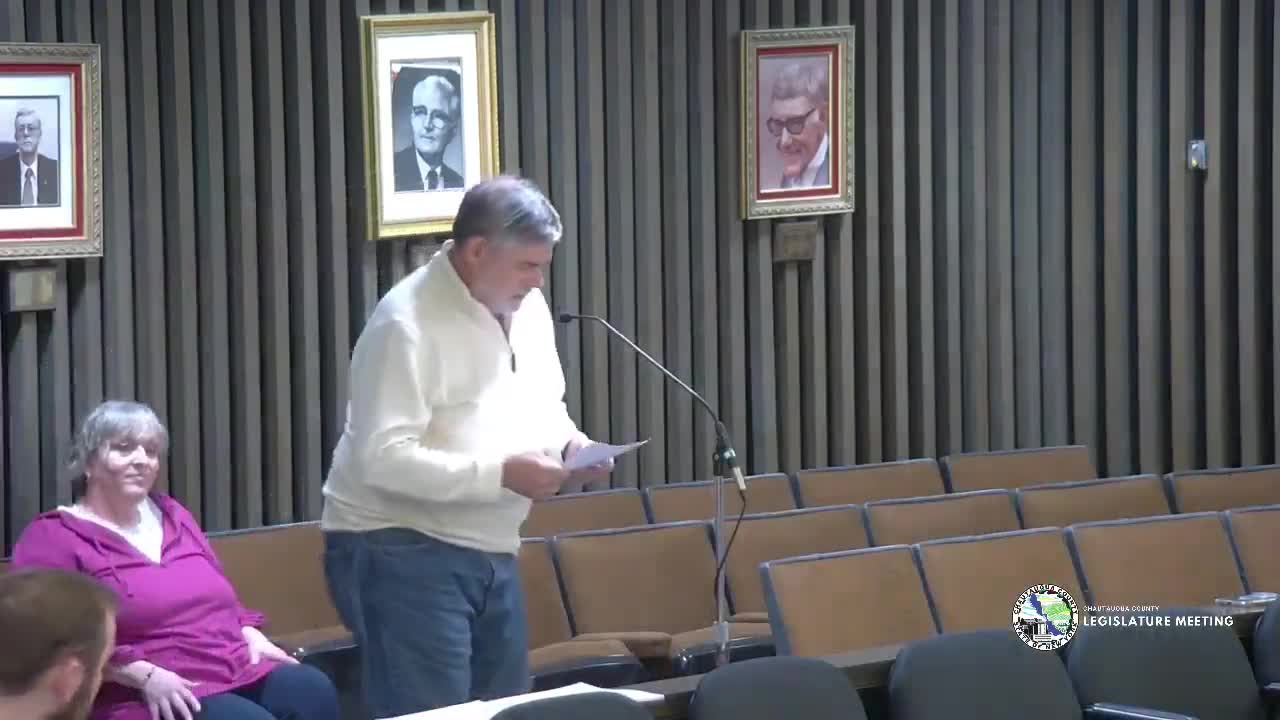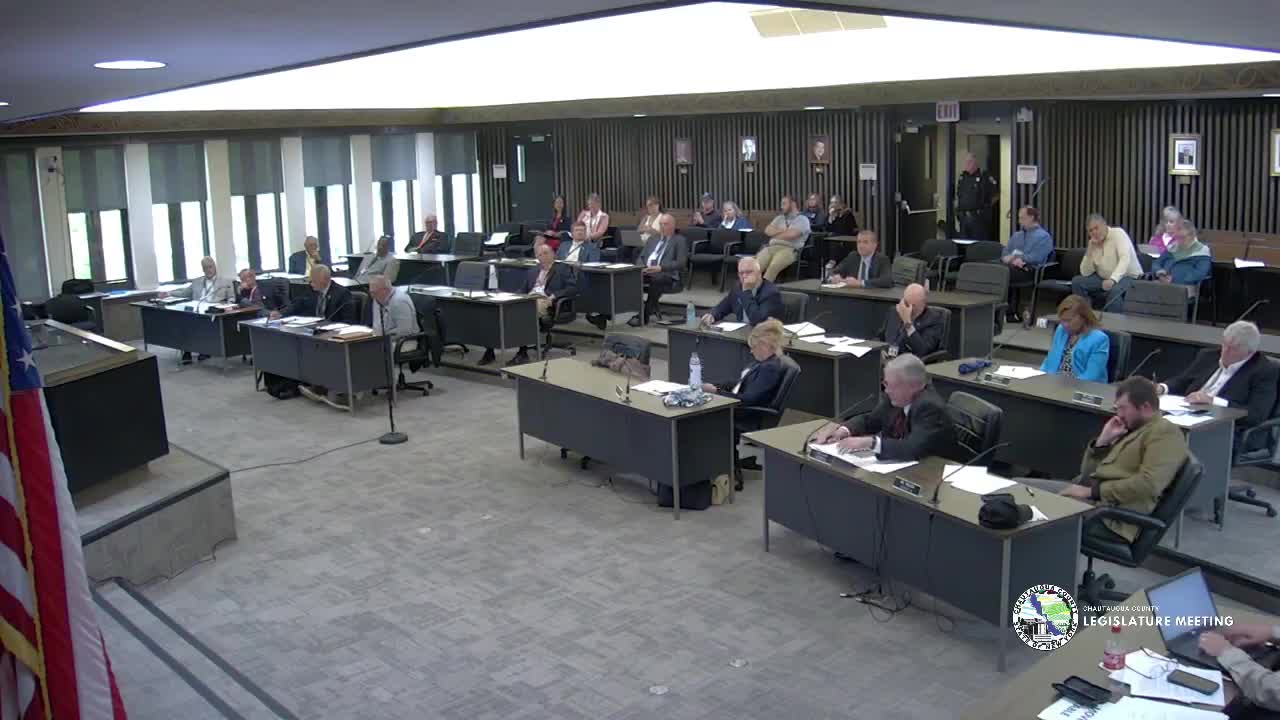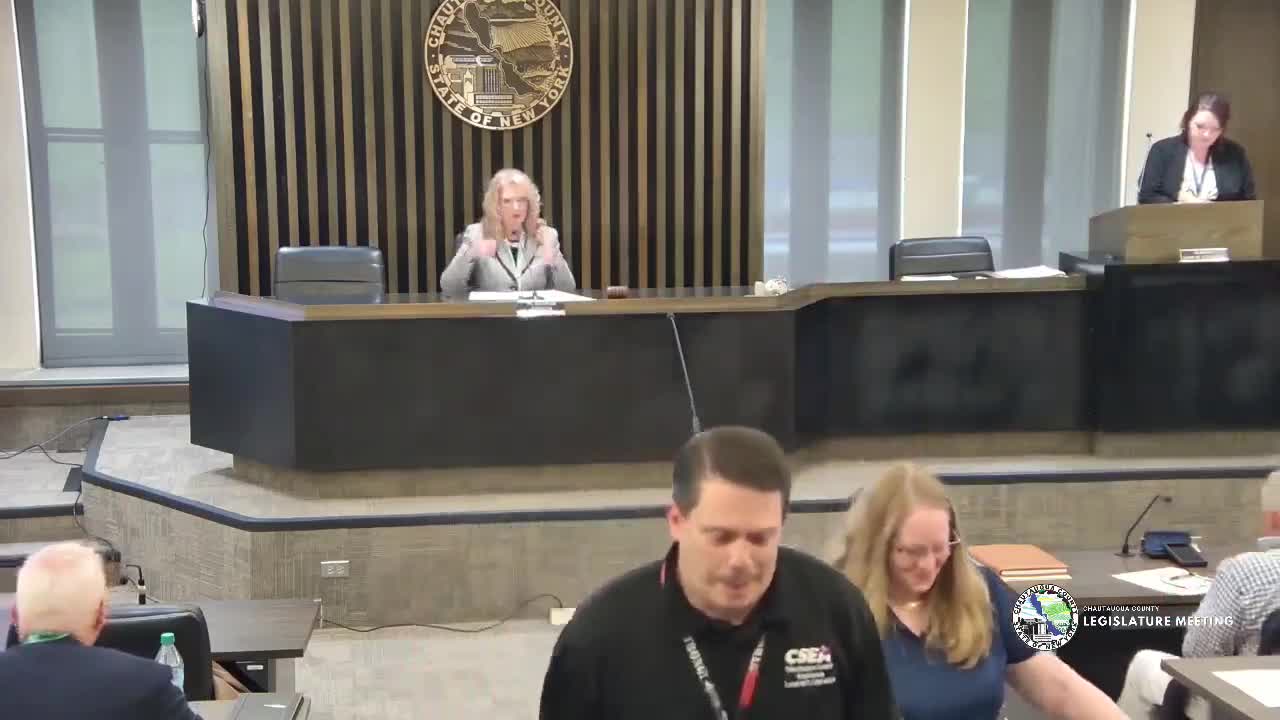Article not found
This article is no longer available. But don't worry—we've gathered other articles that discuss the same topic.

Votes at a glance: Chautauqua County Legislature, May 28, 2025

Lake property owners urge county to back legal challenge to state wetlands rules; others support protections

Chautauqua County adopts additional 0.25% mortgage tax after split vote

